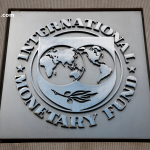Onitsha, Nigeria – April 2, 2025 – The National Agency for Food and Drug Administration and Control (NAFDAC) has officially reopened the popular Onitsha Drug Market, months after its closure due to regulatory violations. The agency cited significant improvements in compliance with pharmaceutical regulations and enhanced measures to prevent the distribution of counterfeit drugs as key reasons for allowing traders to resume operations.
The reopening follows months of deliberations, inspections, and commitments from stakeholders, including drug merchants, market leaders, and government officials, to ensure that the market meets national drug safety standards.
Background on the Closure
NAFDAC had shut down the Onitsha Drug Market in 2024 over concerns about the proliferation of fake and substandard medicines. The agency had expressed alarm over reports indicating that counterfeit drugs were being sold in large quantities, endangering public health. The closure was part of a broader crackdown on illegal pharmaceutical activities across Nigeria, aimed at curbing the circulation of unsafe medications.
According to NAFDAC Director-General, Prof. Mojisola Adeyeye, the agency had no choice but to take decisive action. “The health and safety of Nigerians remain our top priority. The presence of counterfeit and substandard drugs in the market posed a severe risk, and we had to intervene to prevent further damage,” she stated.
Why the Market Was Reopened
The decision to reopen the market came after traders and stakeholders agreed to adhere to stricter guidelines set by NAFDAC. Among the new measures implemented include:
- Strict Regulatory Oversight: Traders must now obtain proper documentation for all drugs sold in the market. Regular inspections will be conducted to ensure compliance.
- Track-and-Trace System: A digital tracking system has been introduced to monitor the supply chain and prevent the entry of counterfeit drugs.
- Warehouse Centralization: Instead of selling from multiple unregulated stalls, drugs will now be stored in centralized warehouses under strict monitoring.
- Pharmaceutical Training: Traders and pharmacists within the market have undergone specialized training on drug safety, handling, and regulatory compliance.
- Mandatory Licensing: Every trader must possess a valid NAFDAC registration and operate under approved pharmaceutical conditions.
According to Prof. Adeyeye, “We are not just reopening the market; we are introducing a new era of accountability and safety in drug distribution. Any violation of these new rules will lead to immediate sanctions, including permanent closure of defaulting shops.”
Reactions from Market Stakeholders
Traders and business owners in the Onitsha Drug Market have expressed relief at the reopening, citing the financial hardship many of them faced during the closure.
Chief Boniface Okoye, a pharmaceutical distributor, said, “We have learned a valuable lesson. The closure affected our businesses, but we now understand the importance of following the law. We are committed to ensuring only genuine drugs are sold here.”
Similarly, the President of the Anambra State Pharmacists Association, Dr. Chukwuemeka Nwosu, welcomed the development but urged continued vigilance. “While this is a positive step, we must ensure that enforcement does not slacken. The problem of fake drugs is a serious one, and we must remain proactive in tackling it,” he stated.
Public Health Implications
Health experts have lauded NAFDAC’s decision, emphasizing that a properly regulated Onitsha Drug Market will significantly reduce the circulation of counterfeit medicines. According to Dr. Ifeanyi Eze, a public health consultant, “Substandard drugs contribute to treatment failures, resistance to antibiotics, and even deaths. By enforcing strict regulations, NAFDAC is taking a crucial step toward safeguarding public health.”
NAFDAC has also urged consumers to remain vigilant when purchasing drugs and to report any suspicious pharmaceutical products to the agency.
The Way Forward
With the market now operational again, NAFDAC has pledged to maintain regular surveillance to ensure sustained compliance. The agency also hinted at expanding its digital track-and-trace system to other major drug markets in Nigeria.
“As we move forward, we expect full cooperation from traders, pharmacists, and the public to ensure Nigeria’s drug distribution system is safe and credible,” Prof. Adeyeye concluded.
The reopening of the Onitsha Drug Market marks a significant milestone in Nigeria’s fight against counterfeit drugs, but experts warn that sustained efforts are needed to ensure long-term success in the battle against fake pharmaceuticals.












NICE ONE